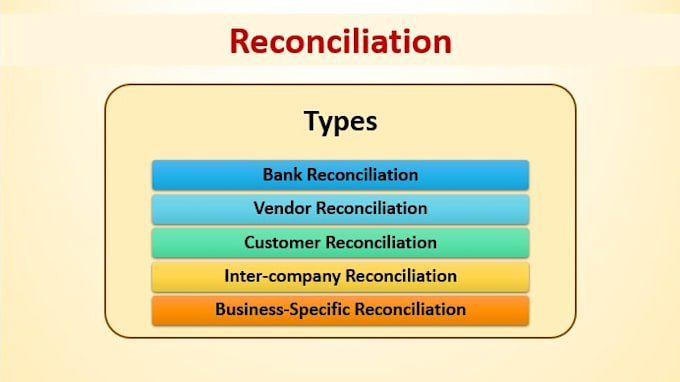Procuring Cause in Real Estate: Understanding the Critical Concept for Agents and Brokers
What’s procuring cause in real estate?
Procure cause refer to the actions and efforts of a real estate agent that finally result in the sale or purchase of a property. In simple terms, it determines which agent deserves the commission in a real estate transaction. This concept become peculiarly important when multiple agents are involved with the same buyer or seller.
The national association of realtors ® (nnea) defines procure cause as ” he uninterrupted series of causal events that lead to a successful transaction. ” thThisefinition highlight that procure cause isn’t dedeterminedy a single action but kinda by a continuous chain of events that direct contribute to close a deal.
The fundamental elements of procuring cause
Understand procure cause require familiarity with several key elements:
Origination of the deal
The agent who initiatory introduce a buyer to a property might have a claim to procure cause. Nonetheless, being 1st doesn’t mechanically guarantee this status. What matter is whether this initial introduction start an unbroken chain of events leads to the transaction.
Continuous involvement
An agent must demonstrate ongoing participation throughout the transaction process. Gaps in service or communication can break the chain of procure cause. Documentation of all interactions, showings, and services provide become crucial evidence in procure cause disputes.
Substantial services
The agent must provide meaningful services that contribute to the transaction’s success. These services might include:
- Show properties
- Provide market analyses
- Help with offer preparation
- Negotiate terms
- Assist with inspections
- Facilitate the closing process
Successful completion
Finally, the agent’s efforts must culminate in a closed transaction. Without a complete sale or purchase, the question of procure cause become moot.
Factors that determine procuring cause
When disputes arise about which agent deserve commission, arbitration panels typically consider several factors:
Initial contact and introduction
Who beginning introduce the buyer to the property? While not definitive on its own, this factor carries weight in procure cause determinations. Documentation of this introduction through emails, show logs, or sign visitor sheets can be valuable evidence.
Continuity of service
Did the agent maintain regular contact with the client throughout the process? Abandonment or long periods without communication can break the chain of procure cause. Conversely, consistent communication strengthen an agent’s claim.
Nature and extent of services
The quality and quantity of services provide matter importantly. An agent who merely show a property east have a weaker claim than one who conduct multiple showings, provide detailed market analyses, and help craft a win offer strategy.
Client’s perception
How did the client view their relationship with the agent? If a buyer believes they were work solely with one agent, this perception can influence procure cause determinations. Nonetheless, client perception exclusively doesn’t override other factors.
Abandonment or estrangement
If a client intentionally stops work with an agent due to dissatisfaction or disagreement, this can break the procuring cause chain. Likewise, if an agentabandonsn a client by fail to respond or provide request services, they may forfeit their procure cause claim.
Written agreements
Exclusive buyer or seller representation agreements can importantly impact procure cause determinations. These contracts oftentimes specify commission arrangements and create legal obligations between parties.
Common procuring cause scenarios and resolutions
Scenario 1: the open house switch
A buyer work with agent a for several weeks. While agent an is unavailable, the buyerattendsd an open house host by agent b, make an offer with agent b’s assistance, and complete the purchase.
Resolution factors: Was agent anactive workk with the buyer? Did the buyer deliberately switch agents or merely act opportunistically? Did agent b know the buyer was work with another agent?
Scenario 2: the new construction dilemma
Agent a show a buyer several new construction communities. Late, the buyer return to one community without agent a and work direct with the builder’s sales representative to purchase a home.
Resolution factors: Did agent a register the buyer with the builder? Was there a significant time gap between agent a’s showing and the buyer’s return? Did the builder’s policies regard agent compensation play a role?
Scenario 3: the internet lead confusion
A buyer inquire about multiple properties online and receive responses from different agents. The buyer finally ppurchasesa home with an agent who wasn’t the first to respond but provide the almost helpful service.
Resolution factors: Which agent establish a meaningful work relationship with the buyer? Did the buyer understandably terminate relationships with other agents? Which agent provide substantial services lead to the transaction?
How brokerages handle procuring cause disputes
When agents from different brokerages claim procure cause for the same transaction, the dispute typically follows this process:
Internal resolution attempts
Before formal proceedings, brokers oftentimes try to negotiate a solution between themselves. This might involve split the commission base on the relative contributions of each agent or review evidence to determine which agent has the stronger claim.

Source: thefathomrealty.com
Mediation
Many realtor ® associations require attempt mediation before arbitration. A neutral mediator help the parties reach a reciprocally acceptable resolution without make a binding decision.
Formal arbitration
If mediation fail, the dispute move to formal arbitration, typically through the local realtor ® association. An arbitration panel review evidence from both sides and make a binding decision about which agent deserves the commission.
Evidence presentation
During arbitration, agents present evidence support their procure cause claims, include:
- Communication record with the client
- Show logs and property visit documentation
- Notes from client meetings and discussions
- Marketing materials create for the client
- Testimony from clients and other involved parties
- Write agreements and contracts
Protect your procuring cause rights as an agent
Real estate professionals can take several steps to strengthen their procuring cause position:
Use written agreements
Exclusive buyer or seller representation agreements understandably establish the professional relationship and commission expectations. These documents create a legal framework that support procure cause claims.
Document everything
Maintain detailed records of all client interactions, include:
- Dates and times of showings
- Properties view
- Advice provide
- Communications send and receive
- Services perform
This documentation become invaluable evidence if a dispute arises.
Register clients with builders and developers
When show new construction properties, officially register your clients with the builder’s sales office. Follow up with write confirmation of this registration.
Communicate clear with clients
Educate clients about your role and how real estate commissions work. Discuss loyalty expectations and the importance of communication if they’re considered work with another agent.
Maintain regular contact
Consistent communication demonstrate ongoing service and strengthen procure cause claims. Regular check ins, property updates, and prompt responses to client inquiries all help maintain the chain of events.
Client considerations regard procuring cause
Buyers and sellers should understand several important points about procure cause:
Agent loyalty matters
Work with multiple agents simultaneously can create procure cause conflicts. These disputes may delay transactions and create unnecessary complications.
Clear communication is essential
If dissatisfied with an agent’s service, clients should understandably communicate their intention to terminate the relationship before engage another agent. This clarity helps prevent procure cause disputes.
Understand representation agreements
Buyers and sellers should cautiously read and understand any representation agreements before sign. These documents oftentimes address procure cause and commission obligations.
Open house etiquette
When visit open houses while work with an agent, buyers should inform the host agent about their exist representation. This disclosure help prevent future procuring cause conflicts.

Source: thefathomrealty.com
Legal and ethical dimensions of procuring cause
Procure cause exist at the intersection of legal contracts and ethical practice:
Near code of ethics
Article 16 of the realtor ® code of ethics addresses respect exclusive relationships between other realtors ® and their clients. This ethical framework influences procure cause determinations.
State regulations
Some states have specific laws or regulations that impact procure cause determinations. These legal frameworks may supplement or override association guidelines in certain situations.
Contractual obligations
Write agreements between clients and agents create lawfully bind obligations that courts may enforce disregarding of procure cause determinations by professional associations.
The future of procuring cause in change real estate markets
The traditional procuring cause framework face challenges in the evolve real estate landscape:
Technology impact
Online property searches, virtual showings, and digital communication have complicate procuring cause determinations. When buyers find properties severally online but work with agents for transaction facilitation, determine who ” ause “” e sale become more complex.
Alternative compensation models
As the industry explore alternatives to traditional commission structures, the importance and application of procure cause may evolve. Fee for service models, for example, may reduce procure cause disputes by clear define compensation for specific services.
Increase consumer education
As clients become more knowledgeable about real estate processes, their role in transactions expand. This shift may influence how procuring cause is determined when clients take more active roles in find properties and negotiate terms.
Conclusion
Procure cause remain a fundamental concept in real estate that determine which agent deserve commission in a transaction. It relies on establish an uninterrupted chain of events that lead direct to a successful closing.
For real estate professionals, understand procure cause principles and maintain thorough documentation of all client interactions provide the best protection against commission disputes. For consumers, recognize how procure because works help navigate agent relationships more efficaciously and avoid complications in the transaction process.
While the concept may evolve with change market dynamics and technology, the core principle remains: the agent who efficaciously cause a transaction to occur through their professional efforts deserve to becompensatede for that success.



